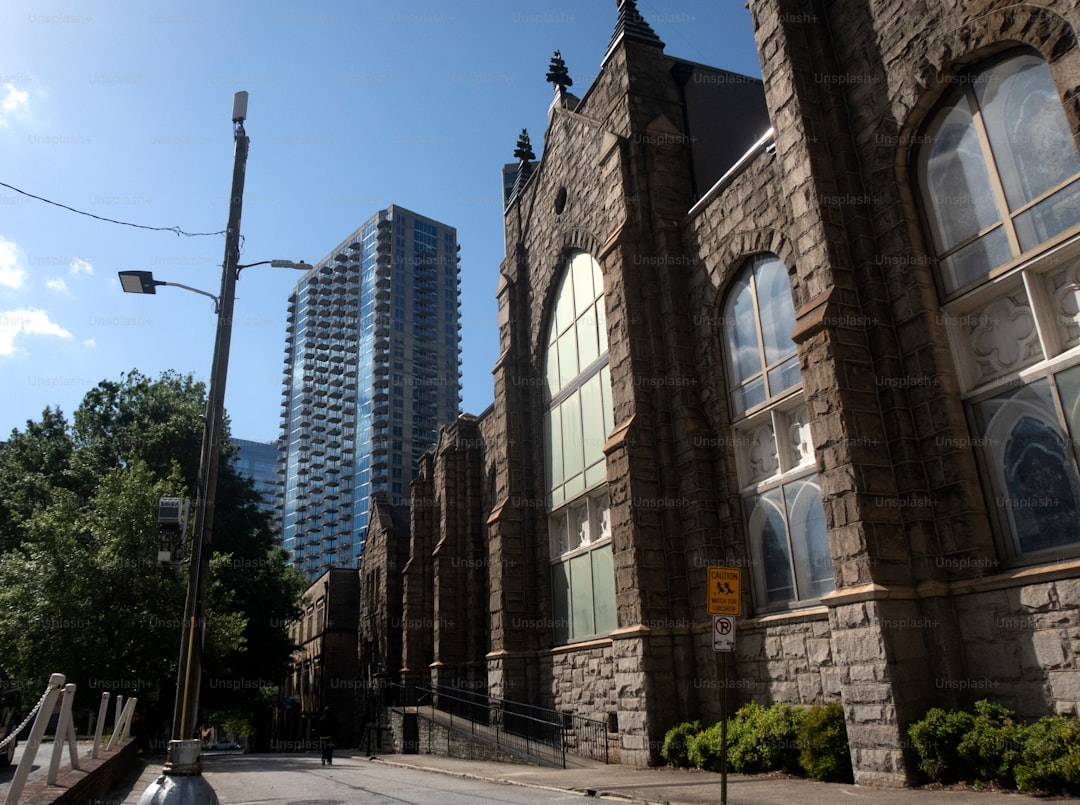Where to Live and Work Abroad Top Cities for Digital Nomads

Introduction
The freedom to work from anywhere has turned the world into a giant office. Digital nomads are no longer confined to coffee shops in their hometowns; they are hopping continents, chasing sunshine, culture, and reliable Wi‑Fi. Choosing the right city can be the difference between a productive, inspiring adventure and a stressful scramble for power outlets and internet speed. This guide surveys the top cities for digital nomads, breaking down what makes each place attractive, the practicalities of staying there, and insider tips to help you settle in quickly and comfortably.
How We Picked the Cities
Not every popular destination automatically qualifies as a digital nomad hub. The cities below were evaluated against a set of criteria that matter to remote workers:
- Internet reliability – speed, stability, and availability of coworking spaces.
- Cost of living – balance between affordable daily expenses and quality of life.
- Visa options – presence of dedicated digital‑nomad visas or easy‑to‑obtain long‑term stays.
- Community – existing expat and nomad networks that make socializing simple.
- Lifestyle – climate, cultural attractions, food scene, and outdoor activities.
- Safety – overall crime rates, health infrastructure, and political stability.
Each city excels in several of these areas, and the descriptions highlight where they shine brightest.
Lisbon, Portugal
Lisbon has become a magnet for remote workers seeking a blend of historic charm and modern infrastructure. The city’s 4G and 5G networks are fast and widely available, and dozens of coworking spaces line the waterfront and the trendy neighborhoods of Bairro Alto and Alfama. The cost of living is moderate compared to other Western European capitals; a mid‑range meal costs about €12 and a one‑bedroom apartment in the city centre rents for roughly €1,200 per month.
Portugal introduced a Digital Nomad Visa that grants up to one year of residency for freelancers and remote employees earning at least €2,800 per month. The application is straightforward and can be processed entirely online.
Lisbon’s cultural calendar is packed with music festivals, street art tours, and food markets. The city’s hills reward explorers with panoramic views of the Tagus River, while nearby beaches such as Cascais offer a quick escape from the urban buzz. The expat community is active, with regular meet‑ups hosted at spaces like Second Home and Heden.
Insider tip: Purchase a Navegante SIM card for the best data packages and take advantage of the Lisbon Card for unlimited public transport and discounted entry to museums.
Berlin, Germany
Berlin’s reputation as a creative hub extends to the digital nomad scene. The city boasts robust broadband, with average download speeds exceeding 100 Mbps, and a wealth of coworking venues ranging from sleek tech‑focused hubs to artistic lofts in the Kreuzberg district. While rent has risen in recent years, sharing an apartment in neighborhoods such as Neukölln or Friedrichshain keeps monthly costs around €800–€1,000 for a room.
Germany does not yet have a dedicated digital‑nomad visa, but the Freelance Visa (Freiberufler) allows self‑employed professionals to stay for up to three years, provided they can demonstrate a steady income and have health insurance. The application process involves a notarized contract, proof of earnings, and a business plan, but once approved, it offers a stable base for longer stays.
Berlin’s nightlife, museums, and open‑air events make it easy to unwind after work. The city’s extensive public transport network—U‑Bahn, S‑Bahn, trams, and buses—connects every corner, and the city’s bike lanes encourage eco‑friendly commuting. The international community is vibrant, with regular tech talks, language exchanges, and social gatherings organized by groups like Berlin Startup Stipendium.
Insider tip: Join the Meetup group “Berlin Digital Nomads” for weekly coffee meet‑ups and quarterly city tours.
Tallinn, Estonia
Tallinn may be small, but it punches above its weight in digital‑nomad friendliness. Estonia’s e‑Residency program allows anyone to establish a location‑independent business with a fully digital address, and the Digital Nomad Visa grants up to a year of residence for remote workers earning at least €3,504 per month. The application can be completed online, and the country’s transparent bureaucracy makes the process painless.
Internet speed in Tallinn is among the fastest in Europe, regularly topping 150 Mbps, and the city’s compact size means coworking spaces are within walking distance of most residential areas. Rent is affordable; a one‑bedroom apartment in the city centre costs around €800 per month, and a meal at a mid‑range restaurant averages €12.
Tallinn’s medieval Old Town provides a picturesque backdrop for work breaks, while the modern business district offers a vibrant nightlife. The city’s tech scene is thriving, with frequent hackathons and startup events. The local community is welcoming, and many Estonians speak fluent English, easing everyday interactions.
Insider tip: Take advantage of the Koolitaja coworking spaces, which often host free workshops on entrepreneurship and digital skills.
Barcelona, Spain
Barcelona blends Mediterranean sunshine with a buzzing creative atmosphere, making it a perennial favorite for remote workers. The city’s fiber optic network delivers stable connections, and the coworking scene is diverse—spaces like WeWork, OneCo, and Talent Garden cater to both freelancers and growing teams. Rent in central neighborhoods such as Eixample or Gràcia can be steep, but sharing a flat reduces costs to around €700–€900 per month for a room.
Spain offers a Self‑Employment Visa that can be used by digital nomads who can prove a steady income and have a Spanish bank account. While the process is more involved than some dedicated nomad visas, it provides a path to long‑term residency.
Beyond work, Barcelona’s beaches, parks, and architectural wonders—most famously Gaudí’s Sagrada Família—provide endless inspiration. The city’s culinary scene ranges from tapas bars to Michelin‑starred restaurants, and the nightlife is lively, especially in the El Born and Gothic Quarter districts. The expat community is sizable, with regular meet‑ups organized by groups like Barcelona Digital Nomads and Nomad List.
Insider tip: Purchase a T‑10 public transport ticket for ten rides at a discounted rate, and use the city’s extensive bike‑share system to commute between coworking spaces and the beach.
Budapest, Hungary
Budapest has emerged as a cost‑effective hub for digital nomads seeking a blend of history, culture, and reliable connectivity. The city’s average internet speed hovers around 80 Mbps, and coworking spaces such as Kaptár, Loffice, and Impact Hub provide comfortable environments with fast Wi‑Fi and community events. Rent is remarkably affordable; a one‑bedroom apartment in the central districts of District V or VII can be found for €700–€850 per month.
Hungary does not yet have a dedicated digital‑nomad visa, but the National Visa D can be obtained for stays longer than 90 days if you can demonstrate sufficient income (approximately €2,500 per month) and have health insurance. The application is processed at Hungarian consulates and includes proof of accommodation and a criminal background check.
Budapest’s thermal baths, ruin bars, and vibrant art scene create a lively backdrop for after‑work relaxation. The Danube River offers scenic walks, while the city’s extensive public transport—metro, trams, and buses—makes getting around simple. The nomad community is active, with regular social events hosted by coworking spaces and Facebook groups like Budapest Remote Workers.
Insider tip: Grab a Budapest Card for free public transport and discounted entry to museums and baths, and explore the city’s hidden courtyards for quiet work spots.
Chiang Mai, Thailand
Chiang Mai has long been a favorite among backpackers and remote workers alike, thanks to its low cost of living, relaxed vibe, and strong expat network. The city’s internet speeds average 50‑70 Mbps, and many coworking spaces—such as Punspace, Mana Coworking, and CAMP—offer fast Wi‑Fi, ergonomic chairs, and community events. A comfortable one‑bedroom apartment in the Old City or Nimman district rents for about $300–$450 per month, and street food meals can be as cheap as $1.50.
Thailand introduced a Long‑Term Resident Visa (LTR) for digital nomads, granting up to ten years of stay for individuals earning at least $100,000 annually. The visa requires proof of income, health insurance, and a background check, but once approved, it offers an unprecedented level of stability for remote workers.
Chiang Mai’s natural surroundings—mountains, waterfalls, and national parks—provide ample opportunities for weekend hikes and retreats. The city’s night markets, cooking classes, and Buddhist temples add cultural depth to everyday life. The nomad community is tight‑knit, with weekly meet‑ups at coworking spaces, language exchanges, and social events organized through platforms like Meetup and Facebook Groups.
Insider tip: Invest in a TrueMove or AIS 5G SIM card for the fastest mobile data, and use the Songthaew shared taxis for cheap and convenient transport around town.
Bali (Ubud), Indonesia
Ubud, nestled in the heart of Bali’s lush interior, offers a serene setting for focused work and creative inspiration. The town’s coworking scene has flourished, with spaces like Hubud, Outpost, and Dojo Bali providing reliable internet speeds of 30‑50 Mbps, scenic garden views, and regular workshops. While Bali’s popularity has driven up prices in tourist hotspots, a modest one‑bedroom villa with a private pool can be rented for $800–$1,200 per month, especially if you sign a longer lease.
Indonesia launched a Digital Nomad Visa that allows remote workers to stay for up to five years, provided they earn at least $2,000 per month and have health insurance. The application can be submitted online, and the visa grants multiple entries, making it ideal for those who want to travel around the archipelago.
Ubud’s cultural richness—temple ceremonies, art markets, and traditional dance performances—creates an immersive environment. The surrounding rice terraces, waterfalls, and volcanic hikes provide ample opportunities for relaxation and recreation. The expat community is vibrant, with frequent yoga retreats, surf trips, and community dinners organized by coworking spaces.
Insider tip: Use a Bima or Telkomsel 4G/5G SIM card for reliable data, and join the Ubud Community Meet‑up for weekly networking events and skill‑share sessions.
Ho Chi Minh City, Vietnam
Ho Chi Minh City (Saigon) blends bustling urban energy with a growing infrastructure for remote work. Internet speeds average 40‑60 Mbps, and coworking spaces such as Dreamplex, WeWork, and The Hive offer modern amenities, fast Wi‑Fi, and community events. Rent remains affordable; a one‑bedroom apartment in District 1 or 3 can be found for $500–$800 per month, and street food meals cost around $2–$3.
Vietnam does not currently have a dedicated digital‑nomad visa, but the Temporary Residence Card can be obtained for stays longer than 90 days if you have a local sponsor and can demonstrate a stable income (around $2,500 per month). The process involves a work permit or investment proof, but many nomads use the visa to establish a local presence while working remotely for foreign companies.
The city’s dynamic nightlife, coffee culture, and historic French colonial architecture provide a lively backdrop for after‑work activities. Food lovers can explore the famous Ben Thanh Market, enjoy fresh seafood, and indulge in Vietnamese coffee. The expat community is active, with frequent meet‑ups at coworking spaces, language exchange events, and tech meet‑ups organized by groups like Saigon Startups.
Insider tip: Grab a Viettel or Mobifone 5G SIM for the best data speeds, and ride the Cyclos (bike taxis) for quick, affordable transport across the city.
Taipei, Taiwan
Taipei consistently ranks high for digital nomads due to its reliable internet, safety, and vibrant food scene. The city’s broadband speeds often exceed 150 Mbps, and coworking spaces such as FutureWard, The Hive, and CLBC provide excellent facilities and community programs. Rent is moderate; a one‑bedroom apartment in the Da’an or Zhongzheng districts costs around $900–$1,200 per month.
Taiwan offers a Gold Card—a combined work and residence permit that allows remote workers to stay for up to three years if they earn at least $4,300 per month. The application is fully online and includes a background check and health insurance proof. Holders also enjoy tax benefits and the ability to travel visa‑free to many countries.
Taipei’s night markets, hot springs, and cultural festivals offer endless entertainment. The city’s efficient MRT system makes commuting simple, and the extensive bike‑share program provides a healthy alternative for short trips. The expat community is supportive, with regular gatherings at coworking spaces, language exchange nights, and hiking groups exploring the surrounding mountains.
Insider tip: Purchase an EasyCard for seamless travel on the MRT, buses, and bike‑share, and download the LINE app to connect with local communities and service providers.
Mexico City, Mexico
Mexico City blends a rich cultural heritage with a thriving modern economy, making it an attractive destination for digital nomads. The city’s internet infrastructure offers average speeds of 70‑90 Mbps, and coworking hubs such as WeWork, Selina, and The Pool provide comfortable work environments and networking events. Rent varies by neighborhood; a one‑bedroom apartment in Condesa or Roma costs around $900–$1,200 per month, while more affordable options exist in neighborhoods like Del Valle.
Mexico introduced a Temporary Resident Visa for remote workers earning at least $2,500 per month. The visa grants up to one year of stay with the possibility of renewal, and the application can be completed at Mexican consulates abroad. Health insurance coverage is required, and the process includes proof of income and a clean criminal record.
The city’s culinary scene—from street‑taco stalls to high‑end restaurants—offers endless variety. Cultural attractions such as the Frida Kahlo Museum, Chapultepec Park, and historic downtown provide ample inspiration. The public transport network, consisting of metro lines, buses, and a bike‑share program, makes getting around easy. An active expat community hosts regular meet‑ups, tech talks, and social events in coworking spaces and cultural centers.
Insider tip: Use the MetroCard for discounted rides on the subway, and explore the Coyoacán district for a quieter, artistic atmosphere and excellent cafés.
Austin, United States
Austin’s reputation as “Silicon Hills” extends to remote workers seeking a vibrant tech scene and a laid‑back lifestyle. The city’s internet speeds regularly exceed 150 Mbps, and coworking spaces like WeWork, Capital Factory, and Impact Hub cater to startups, freelancers, and corporate teams. Rent in central neighborhoods such as South Congress or East Austin can be higher than other U.S. cities, with one‑bedroom apartments ranging from $1,300 to $1,800 per month, but shared housing can lower costs.
The United States does not have a specific digital‑nomad visa, but many remote workers enter on a B‑1/B‑2 tourist visa (up to six months) or the ESTA program for visa‑free travel (up to 90 days). Longer stays require a work visa or a green card, but many nomads use the city as a short‑term base while traveling elsewhere.
Austin’s music festivals, food trucks, and outdoor activities—such as kayaking on Lady Bird Lake and hiking the Barton Creek Greenbelt—provide a balanced lifestyle. The city’s tech ecosystem fosters networking opportunities, and the community is known for its friendliness and inclusivity. Regular meet‑ups, hackathons, and coworking events make it easy to connect with like‑minded professionals.
Insider tip: Purchase a Capital Metro pass for unlimited bus and rail rides, and take advantage of the city’s numerous free Wi‑Fi hotspots in parks and public libraries.
Medellín, Colombia
Medellín has reinvented itself from a turbulent past into a modern, innovative city that attracts digital nomads worldwide. The city’s internet speeds average 60‑80 Mbps, and coworking spaces such as Selina, WeWork, and La Casa Redonda offer reliable connectivity and community events. Rent is affordable; a one‑bedroom apartment in El Poblado or Laureles costs around $800–$1,100 per month.
Colombia introduced a Digital Nomad Visa that allows stays of up to two years for remote workers earning at least $2,500 per month. The visa requires proof of income, health insurance, and a clean criminal record, and it can be applied for online through the Colombian Ministry of Foreign Affairs.
The city’s “eternal spring” climate—average temperatures around 72 °F—makes outdoor activities enjoyable year‑round. Medellín’s vibrant cultural scene includes museums, street art, and the annual Flower Festival. The public transportation system, featuring the Metro, cable cars, and extensive bus network, connects the city efficiently. The expat community is active, with regular meet‑ups, language exchanges, and tech events organized by groups like Medellín Digital Nomads.
Insider tip: Get a Civica prepaid SIM card for reliable data, and explore the nearby coffee region for weekend getaways.
Buenos Aires, Argentina
Buenos Aires offers a European‑style atmosphere with South American flair, attracting remote workers who appreciate culture, nightlife, and affordability. Internet speeds range from 30‑50 Mbps, and coworking spaces such as La Maquinita, Urban Station, and WeWork provide comfortable work environments. Rent for a one‑bedroom apartment in neighborhoods like Palermo or San Telmo costs around $600–$900 per month, and meals at local parrillas (steakhouses) are reasonably priced.
Argentina does not have a specific digital‑nomad visa, but the Temporary Resident Visa can be obtained for stays longer than 90 days if you can prove a stable income (approximately $2,000 per month) and have health insurance. The process involves submitting documentation to the Argentine consulate and may take several weeks.
The city’s tango salons, historic cafés, and vibrant art scene create a stimulating environment for creativity. Public transport—comprising subways, buses, and a bike‑share program—makes moving around easy. The local expat community is welcoming, with regular meet‑ups at coworking spaces, language exchange nights, and cultural tours organized by groups like Buenos Aires Nomads.
Insider tip: Use the SUBE card for discounted rides on buses and the subway, and explore the nearby Delta del Tigre for weekend boat trips.
Nairobi, Kenya
Nairobi is emerging as a gateway to Africa’s digital nomad scene, offering a blend of urban amenities and access to spectacular wildlife. Internet speeds are improving, averaging 40‑60 Mbps in most coworking spaces such as iHub, Nairobi Garage, and Workstyle Africa. Rent for a one‑bedroom apartment in Westlands or Kilimani ranges from $900 to $1,300 per month, depending on amenities.
Kenya introduced a Digital Nomad Visa that allows remote workers to stay for up to one year, provided they earn at least $2,500 per month and have health insurance. The application is completed online and requires proof of income, a passport, and a clean criminal record.
Nairobi’s cultural attractions include museums, markets, and a thriving food scene that mixes traditional Kenyan dishes with international cuisine. The city’s proximity to national parks—such as the Nairobi National Park—offers weekend safaris and hiking opportunities. The expat community is vibrant, with regular networking events, tech meet‑ups, and social gatherings at coworking hubs.
Insider tip: Purchase a Safaricom 4G/5G SIM card for reliable data, and join the Nairobi Expat Community on Facebook for up‑to‑date event listings.
Cape Town, South Africa
Cape Town combines stunning natural scenery with a cosmopolitan vibe, making it a top destination for remote workers who love the outdoors. The city’s internet speeds average 50‑70 Mbps, and coworking spaces such as Workshop17, Cape Town Office, and The Vault offer reliable Wi‑Fi and community programs. Rent for a one‑bedroom apartment in areas like Sea Point or Green Point costs around $1,000–$1,500 per month.
South Africa does not yet have a dedicated digital‑nomad visa, but the Temporary Residence Permit can be obtained for stays longer than 90 days if you can demonstrate a steady income (about $2,500 per month) and have health insurance. The application requires a local sponsor or proof of accommodation.
The city’s attractions—Table Mountain, beaches, vineyards, and a vibrant arts scene—provide a balanced lifestyle. Public transport includes a reliable bus system and a modern train line, though many residents prefer using ride‑hailing apps. The expat community is active, with regular meet‑ups at coworking spaces, hiking groups, and cultural events.
Insider tip: Use a MTN or Vodacom 5G SIM for fast data, and take advantage of the Cape Town Card for discounts on attractions and public transport.
Dubai, United Arab Emirates
Dubai offers a futuristic cityscape, world‑class infrastructure, and a tax‑free environment that appeals to high‑earning remote professionals. Internet speeds regularly exceed 200 Mbps, and coworking spaces such as AstroLabs, WeWork, and The Co‑Working Space provide premium facilities. Rent for a one‑bedroom apartment in neighborhoods like Downtown Dubai or Marina ranges from $1,800 to $2,500 per month.
The United Arab Emirates introduced a Virtual Working Program that grants a one‑year residence visa to remote workers earning at least $5,000 per month. Applicants must have health insurance, a passport valid for six months, and proof of employment with a company outside the UAE. The program is processed online and includes a simple background check.
Dubai’s lifestyle offers luxury shopping, diverse dining, and endless networking opportunities, especially in the tech and finance sectors. The city’s public transport—metro, trams, and buses—is modern and efficient. A large expat community ensures that social events, meet‑ups, and hobby clubs are readily available.
Insider tip: Apply for a DU or Etisalat 5G SIM for the best coverage, and use the Nol Card for seamless travel on the metro and buses.
Istanbul, Turkey
Istanbul straddles two continents, providing a unique cultural mix that appeals to creative remote workers. The city’s internet speeds average 60‑80 Mbps, and coworking spaces such as Kolektif House, Workinton, and Bunker deliver fast Wi‑Fi and community events. Rent for a one‑bedroom apartment in neighborhoods like Beyoğlu or Kadıköy costs around $700–$1,200 per month.
Turkey offers a Digital Nomad Visa that allows stays of up to one year for remote workers earning at least $2,500 per month. The visa requires proof of income, health insurance, and a clean criminal record, and it can be applied for at Turkish consulates or online.
Istanbul’s historic sites, bustling bazaars, and vibrant nightlife provide endless inspiration. The city’s public transport network—metro, trams, ferries, and buses—makes commuting convenient. The expat community is diverse, with regular meet‑ups, language exchanges, and cultural tours organized by groups like Istanbul Digital Nomads.
Insider tip: Get a Turkcell 5G SIM for reliable data, and purchase an Istanbulkart for discounted rides on all public transport.
Emerging Hotspot: Tbilisi, Georgia
Tbilisi is fast becoming a favorite among budget‑conscious nomads who value hospitality and easy visa processes. Internet speeds average 40‑60 Mbps, and coworking spaces such as Impact Hub, Terminal, and Cluster provide a welcoming environment. Rent for a one‑bedroom apartment in the Old Town or Vake district is typically $400–$700 per month.
Georgia offers a Remote Work Visa that permits stays of up to one year for freelancers and remote employees earning at least $2,000 per month. The application is simple, requires proof of income and health insurance, and can be completed online.
The city’s charming architecture, thriving food scene, and proximity to mountains make it ideal for both work and adventure. Public transport includes buses and a modest metro system, while ride‑hailing apps are widely used. The expat community is growing, with regular gatherings at coworking spaces, hiking clubs, and cultural festivals.
Insider tip: Use a Georgian Telecom SIM for affordable data, and explore the nearby Kazbegi region for weekend trekking.
Emerging Hotspot: Porto, Portugal
Porto offers a laid‑back atmosphere, historic streets, and a lower cost of living than Lisbon while still enjoying Portugal’s digital‑nomad friendly policies. Internet speeds are solid, averaging 80‑100 Mbps, and coworking hubs like Porto i/o, Bespoke, and Rosa Porto cater to freelancers and startups. Rent for a one‑bedroom apartment in the Ribeira or Cedofeita districts ranges from €700–€950 per month.
Portugal’s Digital Nomad Visa also applies to Porto, allowing stays of up to one year for remote workers earning at least €2,800 per month. The process is straightforward and can be completed through the Portuguese consulate.
Porto’s wine culture, riverfront promenades, and vibrant art scene provide plenty of leisure options. The city’s public transport includes metro, buses, and trams, and the compact layout makes walking a viable option. A friendly expat community organizes regular meet‑ups, language exchanges, and tech events.
Insider tip: Purchase a Porto Card for unlimited public transport and discounts on museums and attractions.
Emerging Hotspot: Ljubljana, Slovenia
Ljubljana is a green, safe, and compact capital that attracts remote workers seeking a high quality of life. Internet speeds average 80‑120 Mbps, and coworking spaces such as Poligon, Co‑Work Ljubljana, and ABC Hub provide modern facilities. Rent for a one‑bedroom apartment in the city centre is about €800–€1,100 per month.
Slovenia does not yet have a specific digital‑nomad visa, but the Temporary Residence Permit can be obtained for remote workers who can prove an income of at least €2,500 per month and have health insurance. The application process involves submitting documentation to the Slovenian embassy or consulate.
The city’s emphasis on sustainability, abundant parks, and proximity to the Alps make it ideal for outdoor enthusiasts. Public transport includes buses and a well‑connected bike‑share system. The expat community is active, with regular meet‑ups, cultural tours, and language exchange events.
Insider tip: Use a Telekom Slovenije 5G SIM for fast data, and obtain a Urbancard for unlimited bus travel.
Practical Tips for a Smooth Nomadic Experience
Visa Planning
- Research early – Visa processing times vary widely; start the application at least two months before departure.
- Gather documentation – Proof of income, health insurance, accommodation, and a clean criminal record are common requirements.
- Stay compliant – Keep track of visa expiration dates and renewal procedures to avoid overstays.
Managing Costs
- Housing – Use platforms like Airbnb, Flatio, or local classifieds to find medium‑term rentals. Consider sharing apartments to reduce costs.
- Food – Shop at local markets and cook at home to stretch your budget. Street food is often both cheap and authentic.
- Transportation – Invest in monthly public‑transport passes or bike‑share subscriptions for savings.
Finding Reliable Internet
- Coworking spaces – Most offer high‑speed connections, ergonomic furniture, and backup power.
- Mobile data – Keep a local SIM card with a generous data plan as a fallback.
- Cafés – Look for cafés that advertise “fast Wi‑Fi” and have power outlets; test the connection before settling in.
Building Community
- Meetup groups – Search for “digital nomad” or “remote workers” in the city name.
- Coworking events – Many spaces host weekly socials, workshops, and skill‑share sessions.
- Social media – Join Facebook groups and Slack channels dedicated to nomads in your destination.
Health and Safety
- Health insurance – Choose a plan that covers both routine care and emergency evacuation.
- Local clinics – Identify reputable medical facilities and pharmacies near your accommodation.
- Safety habits – Keep valuables secure, use reputable transport services, and stay informed about local advisories.
Work‑Life Balance
- Set boundaries – Define clear working hours and communicate them to clients or employers.
- Explore – Allocate time each week for sightseeing, outdoor activities, or cultural events.
- Stay active – Join local sports clubs, yoga studios, or hiking groups to maintain physical health.
Conclusion
The digital nomad lifestyle is no longer a niche experiment; it is a thriving global movement. From the historic streets of Lisbon to the bustling tech hubs of Taipei, each city offers a unique blend of connectivity, culture, and community. By evaluating internet reliability, cost of living, visa options, and lifestyle factors, you can choose a destination that aligns with both your professional goals and personal aspirations.
Remember that the best city for you may change over time. Embrace the flexibility of remote work, stay open to new experiences, and let each destination inspire a fresh perspective on life and work. Happy travels, and may your next city become a launchpad for creativity, productivity, and unforgettable adventures.
Random Posts

Legal Checklist for the Modern Nomad Lifestyle
Navigate the nomad life with confidence: a step-by-step legal checklist covering visas, taxes, business structure, banking, insurance, data protection and IP, so you can focus on work and adventure.
1 month ago

Portugal Cost of Living Guide for Digital Nomads
Discover how Portugal lets digital nomads enjoy sunshine, fast internet and a vibrant community while keeping monthly expenses low with practical budgeting tips.
2 months ago

Building a Portable Money Management System for Travelers
Learn how to craft a portable money management system that lets digital nomads earn, spend, save and report anywhere, balancing access, security, compliance and low costs.
2 months ago

Top Global Hubs for Digital Nomads with Smart Flight Strategies
Discover the worlds top digital-nomad hubs and learn cheap, flexible flight hacks to get you there so you can work from vibrant cities without draining your budget.
2 months ago

Smart Tax Strategies and Residency Choices for Digital Nomads
Discover how digital nomads can cut taxes and stay compliant by choosing the right residency, structuring income, and leveraging smart visa options in a clear step-by-step roadmap.
6 days ago
Latest Posts

Essential Software Every Remote Professional Should Use
Master remote work with essential tools: instant messaging like Slack, high definition video calls such as Zoom, and asynchronous voice apps. Streamline communication, stay connected and boost productivity.
1 day ago

Mastering Remote Work Productivity for Digital Nomads and Freelancers
Learn proven habits, tools, and tactics that help digital nomads and freelancers stay focused, deliver quality work, and maintain a sustainable lifestyle while traveling the world.
1 day ago

Tech‑Friendly European Towns Perfect for Remote Living
Discover Europe’s best small towns where fast internet, affordable living and vibrant tech communities let you work remotely while soaking up historic charm, lakeside views or mountain air.
1 day ago